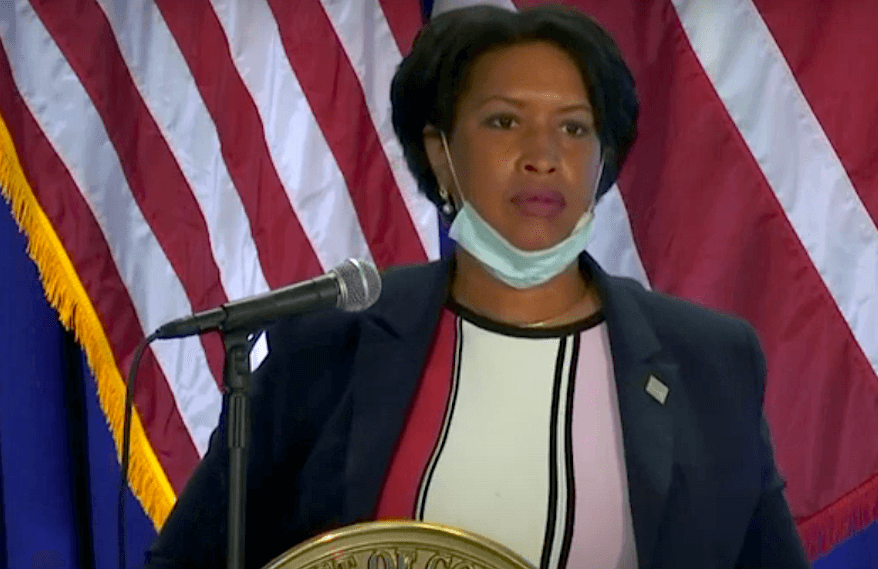D.C.’s Fiscal 2021 Budget Rosier Than Expected
By • May 18, 2020 0 1438

Mayor Muriel Bowser’s May 18 press conference concerning the new D.C. budget, to be presented to the District Council for approval on May 19, confirmed what Council Chairman Phil Mendelson told the Georgetown-Burleith advisory neighborhood commission on May 4: “We are willingly spending down our reserves.”
Of the four reserve funds, three are being spent down vigorously to cover budget shortfalls. According to D.C. budget officials, there is a projected tax revenue shortfall of some $700 million. Several capital projects have been delayed, including plans to increase affordable housing spending. And some revenue has been saved by delaying debt payments, including those for Nationals Park — a debt that was to have been retired a year early.
But the fiscal 2021 budget includes some significant new investments in education, health care, housing, jobs and economic opportunity, public safety and transportation, according to Bowser. While pay increases and new positions have been largely canceled or postponed for the next four years, only some 14 layoffs and no furloughs of D.C. employees are expected out of a workforce of some 35,000, she said.
The new budget contains specific proposals to fund projects to improve health care and promote job opportunities, as well as to advance public safety, transportation, the environment, parks and recreation and governmental services. The amount of $76 million has been designated to repair or replace some of the DC Housing Authority’s aging stock of public housing. Also included are construction plans for two new hospitals and three development projects.
The mayor noted that education is a top priority in the budget, which includes $1.4 billion to expand or modernize 41 schools and a three-percent increase in the Uniform Per Student Funding Formula, making a total of $1.92 billion.
Detailed information on the proposed new budget is available at budget.dc.gov.
D.C. leaders acknowledged that the response to the coronavirus pandemic, which has resulted in the deaths of almost 400 District residents to date, has incurred millions of dollars of expenditures for emergency care equipment, personnel and infrastructure. But the District is expecting some $252 million of direct federal aid through the CARES Act to pay for those costs over the next two years. (About $725 million is expected if and when the District is treated as a state rather than as a territory.)
“The District is very resilient,” said D.C. Chief Financial Officer Jeffrey DeWitt. “We will be able to maintain our three-star bond rating by managing our revenues to rebuild our reserves.” Replenished reserves will give the city the best chance to obtain funds needed in the near future at the most favorable rates. “Our large reserve funds make us peerless among cities,” the mayor said.

